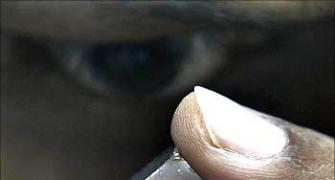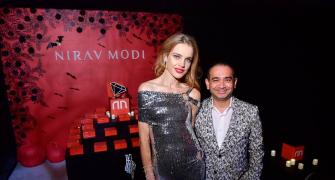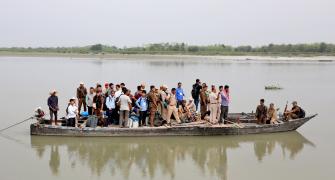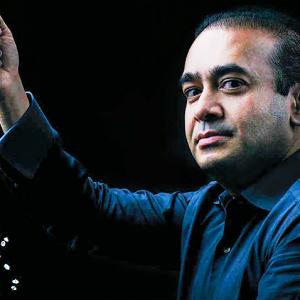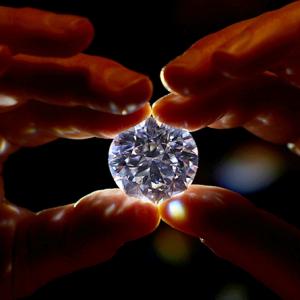 There are around 6,500 diamond manufacturers of which Palanpuri Jains operate a mere 6 per cent, or around 400 companies. But they stand out for being highly interlinked through blood ties.
There are around 6,500 diamond manufacturers of which Palanpuri Jains operate a mere 6 per cent, or around 400 companies. But they stand out for being highly interlinked through blood ties.
What differentiates the diamond industry from rest of the businesses in India?
Long described as a closed circle of a few heavy hitters across one or two ethnic groups controlling the business for generations, the deep-rooted interconnections, mostly through marital alliances, has helped maintain the opacity of the sector when compared to other trades like textiles or gold. But that is changing.
Once controlled by the Jews, Indian immigration between 1950s and 1970s, especially to Antwerp, led to the diamond business being predominated by ethnocentric groups such as Palanpuri Jains, followed by Marwaris and Sindhis.
According to the Gem & Jewellery Export Promotion Council, the $23-billion diamond industry, driven by exports, accounts for a little over a third of the entire gems and jewellery trade. There are around 6,500 diamond manufacturers. Palanpuri Jains operate a mere 6 per cent, or around 400 companies. But they stand out for being highly interlinked through blood ties.
Consider the example of fugitive jeweller Nirav Modi of Firestar Diamonds who is nephew to Gitanjali Gems boss Mehul Choksi. What is perhaps not as commonly known is that Nirav's sister Purvi is married to Mayank Mehta -- brother of Mona who is married to Rosy Blue boss Russell Mehta. Mona's first cousin Preeti is married to Mehul Choksi, Nirav's uncle.
It doesn't stop there. Choksi's daughter Priyanka wed Antwerp-based diamond merchant Akash Mehta in 2011. At the time Priyanka was running A Jaffe, in which Nirav had invested.
Then, in 2002, film financier Bharat Shah's nephew Vishal Shah, a diamond merchant, married Shriya Mehta, a resident of Belgium and from the family that ran VSM Diamonds. VSM Diamonds was suspended from Mumbai bourses for allegedly selling synthetic diamonds as real ones.
In some cases the unions extend into mainstream business circles as well, as in the case of Jatin Mehta, the chairman of Winsome Diamonds and Jewellery, who is also absconding. Jatin’s son Suraj married Krupa, the daughter of Gautam Adani’s brother Vinod Shantilal Adani, in 2012.
A strict vegetarian diet, which excludes onion and garlic, and a clannish housing where non-Palanpuri Jains aren't even allowed to be part of the society are reason why many in the trade end up marrying into each other's families.
But another reason, according to a jeweller is that the diamond business is "based on extremely high-value transactions that demand secrecy both on the buyer and seller fronts and that's much easier when trade partners are related to each other”.
On a purely business-to-business basis, much of the transactions are done on trust and faith, and the web of commerce -- requiring one merchant to sell rough diamonds to another and buy finished diamonds from yet another -- constantly going back and forth, helps related families see alliances as an insurance.
The trade, 30 years ago, was extremely unorganised and ran without processes, but was based on trust and a handshake, says the chief executive of one diamond firm. "They (Palanpuri Jains) are so closely interlinked and all visit the same weddings, anniversaries, deaths and birthdays."
But given most next generation Palanpuri Jains grow up in Belgium and then make their way to Europe or the US, traditionally insular alliances are slowly fading and diamond players from other communities like Marwari and Kathiawadi are on the rise. So the very notion of "one village, one family" is shifting.
Does the trade work the same way across the industry? An insider says it largely operates in 'clusters'.
In Spain, they have clusters for religious-themed jewellery. In Italy, there are clusters for fashionable gold products.
"In India, there are the gemstone clusters in Jaipur, silver clusters in Agra, handmade jewellery clusters in Kolkata, diamond clusters in Saurashtra and Gujarat, and filigree clusters in Odisha."
In other words, the hubs may get more organised, but are unlikely to radically change anytime soon.
Photograph: Gil Cohen Magen/Reuters.



